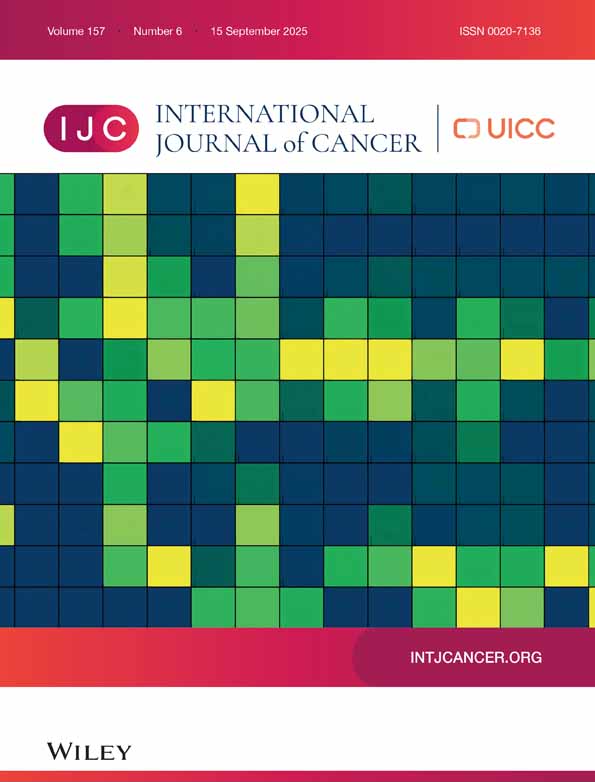Disrupted transforming growth factor-β signaling and deregulated growth in human biliary tract cancer cells
Abstract
Biliary tract carcinoma is a common neoplasm in Japan, and its treatment is difficult because it tends to promote fibrosis and easily invades surrounding tissues. To better characterize the biological features of this carcinoma, we investigated abnormalities in the transforming growth factor-β (TGF-β) signaling pathway in five human biliary tract cancer cell lines: RBE, KMBC, SK-ChA-1, Mz-ChA-1, and Mz-ChA-2. We stably transfected into these cells the luciferase reporter plasmid carrying promoter of the plasminogen activator inhibitor-1 gene, the expression of which is stimulated by TGF-β1. Treating the KMBC and Mz-ChA-1 cells with TGF-β1 neither inhibited cell growth nor stimulated luciferase activity. In contrast, the RBE and Mz-ChA-2 cells responded well to TGF-β1 treatment. TGF-β1-treated SK-ChA-1 cells exhibited attenuated luciferase activity and their growth was not inhibited. Smad4 mRNA was not detected in SK-ChA-1 and Mz-ChA-1 cells by Northern blot analysis. Genetic analysis disclosed a nonsense mutation in the Mad homologue 2a domain of the Smad4 gene in the SK-ChA-1 cells and a heterozygous deletion in the TGF-β type II receptor gene in the KMBC cells. Expression of the exogenous Smad4 gene in the Mz-ChA-1 cells by transient transfection restored their luciferase activity. When these TGF-β1-insensitive and less-TGF-β1-sensitive cell lines were xenografted into nude mice, they developed tumors that had more prominent, intervening fibrosis (desmoplasia) than the tumors caused by TGF-β1-sensitive cells. Thus, a tight correlation between disruption of the TGF-β signaling pathway and deregulated growth of cancer cells has been demonstrated in biliary tract carcinoma. This seems to be a critical event in this carcinoma and may also be correlated with stromal cell reaction in cancer invasion. Int. J. Cancer 86:782–789, 2000. © 2000 Wiley-Liss, Inc.




